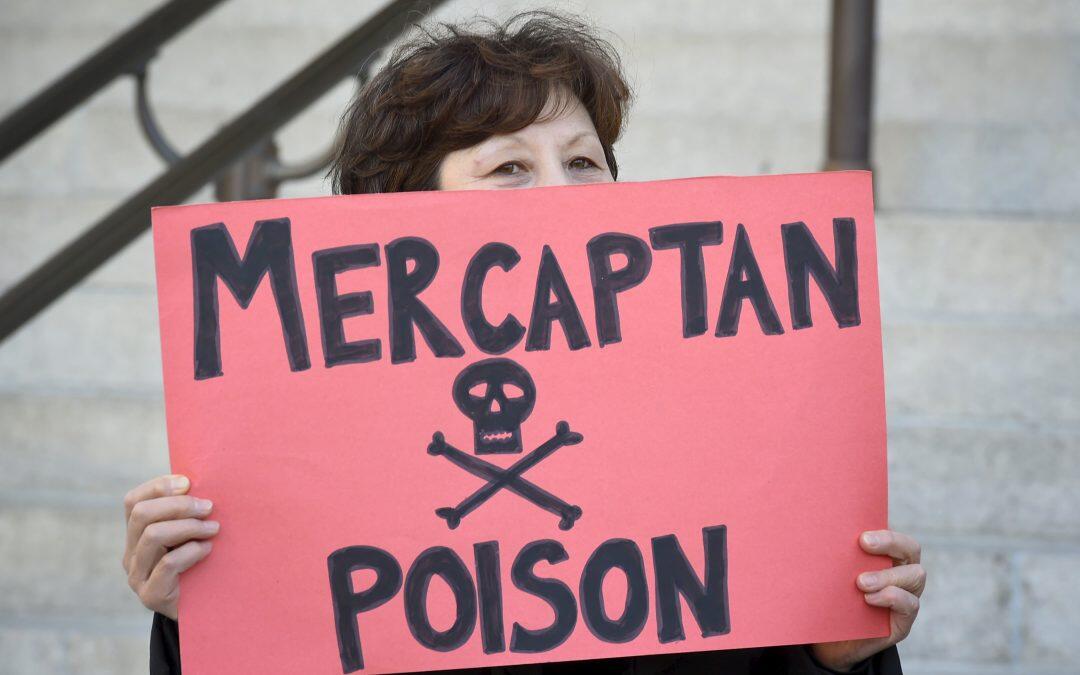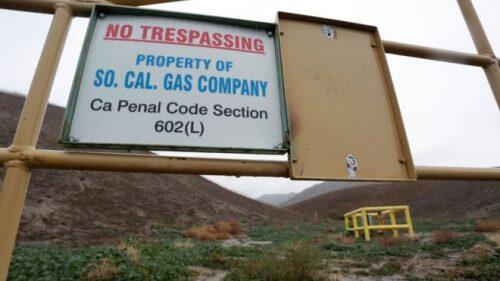One of the biggest environmental disasters which does not seem to be taking over the news bulletins is the California Methane Gas Leak.
The Aliso Canyon blowout vented almost 100,000 tonnes of methane into the atmosphere before it was plugged.
A new U.S. government task force will look into the country’s biggest ever accidental release of methane, which occurred over several months in Los Angeles, California, hoping to prevent future leaks of the potent greenhouse gas from storage wells, the Obama administration said on Friday.
The site of the massive natural gas leak near Los Angeles (GETTY).
Impact on Climate
This disaster’s impact on climate is equivalent to emissions of 500,000 cars, expert say. According to researchers, it had a far bigger warming effect than the BP oil spill in the Gulf of Mexico in 2010.
“The fact that this leak happened in the first place, the length of time that it took to fix, and the disruption that it caused for so many people are very concerning,” Lynn Orr, a Department of Energy undersecretary, and Marie Therese Dominguez, the administrator of the Pipeline and Hazardous Materials Safety Administration, said in a release.
Sanders: Profound Danger
Bernie Sanders, candidate for the Democratic presidential nomination in the United States of America, announced through USA Today website on Monday the 18th of April, that he is “proud that my state of Vermont has joined with New York to ban fracking.
According to New York’s Department of Environmental Conservation, no amount of regulation can safely guard against the dangers fracking poses to our land, water, air, natural resources and public health.
(Photo: Spencer Platt)
Sanders continued: “If we are serious about safe and clean drinking water and clean air, if we are serious about protecting the health of our children and families, and if we are serious about combating climate change, we need to phase out fracking nationwide”.
He added: “Unfortunately, Secretary Hillary Clinton disagrees. Even worse, as secretary of State, she worked to export fracking throughout the world to reward companies such as Chevron, Halliburton, ExxonMobil and ConocoPhillips. That, in my view, is unacceptable”.
Sanders sees that “the time has come to fundamentally transform our energy system away from fossil fuel and toward clean sources of power such as wind, solar and geothermal”, adding that “by doing this, not only will we create millions of new jobs, we also will save our planet in the process”.
However, The Energy Department will hold workshops with industry, state and local leaders to develop practices for operation of storage facilities and ensure well integrity and response plans. Findings of the task force will be made public later this year.
EDF: A Big Climate Opportunity
The Environmental Defense Fund (EDF), confirms that “Curbing methane pollution from the oil and gas industry represents the largest untapped opportunity to quickly slow global climate change because of both methane’s potency, and because we can cost-effectively reduce these harmful emissions using existing technologies.
It adds: “We know that we must control and reduce carbon dioxide because it is the pollutant that ultimately impacts the total amount of warming our planet will experience over time. However, we also know that methane’s warming power is 84 times more potent than carbon dioxide over the first 20 years it sits in the atmosphere, and that methane accounts for 25% of the warming we feel today”.
That means that cutting oil and gas methane is one of the biggest, cheapest and quickest ways to make real progress on climate change right now.
US- CANADA Collaborate to Combat Climate Change
Last month, President of the USA Barack Obama and Prime Minister of Canada Justin Trudeau announced a renewed collaboration to combat climate change starting with methane, one of the most potent greenhouse gases.
It was a big event in Canada-US relations, since for the first time in 19 years, the White House hosted the Canadian Prime Minister for a state dinner.
Under the pact, the United States and Canada committed to reduce oil and gas methane gas emissions by 40-45 percent below 2012 levels by 2025.
Both countries also said the goal would be met by developing regulations for existing sources as well as new ones – a crucial concern – and challenged other countries to adopt similarly aggressive oil and gas methane goals.
According to EDF, This new level of cooperation will deliver significant progress for both Canada and the United States toward achieving their emissions reduction commitments set at the Paris climate talks held this past December.













